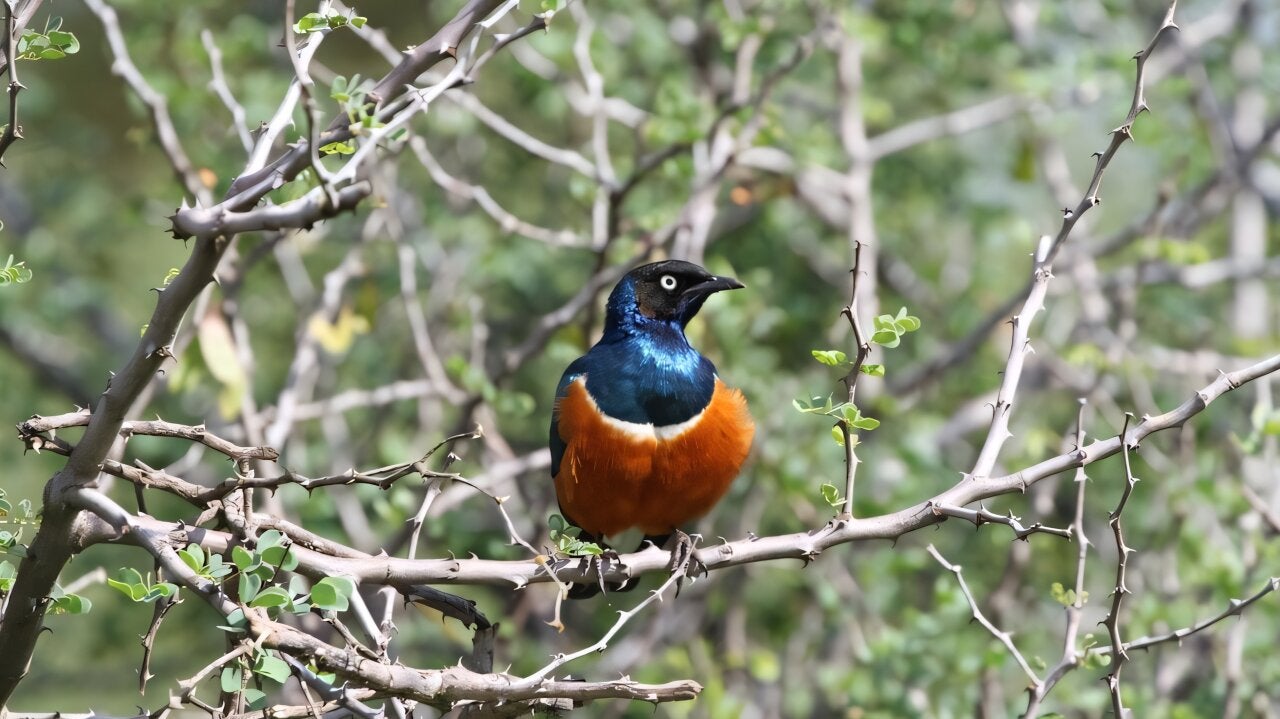These birds form life-long friendships just like humans, study finds
Findings challenge prevalent view of animals only helping direct blood relatives

Almost two decades of research shows strong evidence of long-term friendship among African starlings, a discovery that sheds fresh light on helping behaviour in the animal kingdom.
Animals often help direct blood relatives due to a natural tendency to promote their genes, a phenomenon known as “kin selection”.
Humans routinely deviate from this behaviour and form lifelong friendships with even non-relatives. In the case of animals, though, this kind of cooperation is far harder to establish as it requires collecting and examining large amounts of data over years.
But a new study, published in the journal Nature, reveals that African starlings, a diverse group of birds known for their vibrant colours, do exhibit this kind of long-term friendship.
Drawing on nearly 20 years of observational data, the study concludes that while the starlings do preferentially help their relatives, many also help non-relatives.
“Although we detected kin-biased helping, non-kin helping was common despite opportunities to aid kin,” the study notes.

The non-relative helping behaviour occurs through the formation of reciprocal helping relationships, which tend to take place over many years.
“Starling societies aren’t just simple families, they are much more complex, containing a mixture of related and unrelated individuals that live together, much in the way that humans do,” according to study co-author Dustin Rubenstein.
Researchers studied thousands of interactions between hundreds of African starlings and collected DNA from individual birds to examine their genetic relationships.
Overall, they collected behavioural and genetic data from 40 breeding seasons.
They found that starlings preferentially aided relatives but also consistently helped specific non-relative birds even when relatives were available to help.
“Unexpectedly, specific pairs maintained long-term reciprocal helping relationships by swapping social roles across their lifetimes,” they noted.
The findings challenge the prevalent view of helping in the animal kingdom purely as a form of altruism due to kin selection.
“Our next step is to explore how these relationships form, how long they last, why some relationships stay robust, while others fall apart,” Dr Rubenstein said. “I think this kind of reciprocal helping behaviour is likely going on in a lot of animal societies, and people just haven’t studied them long enough to be able to detect it.”
Join our commenting forum
Join thought-provoking conversations, follow other Independent readers and see their replies
Comments